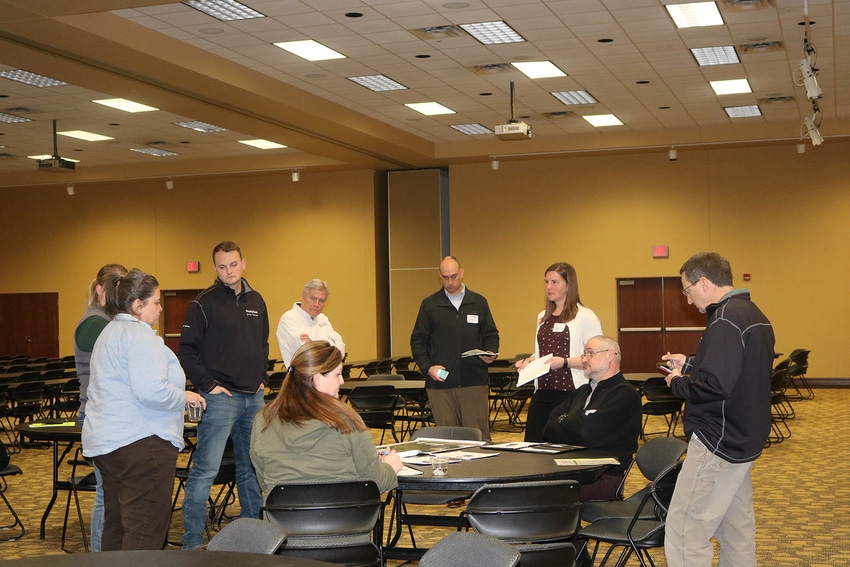In the case of a national stop movement, having the data to show an official could mean the difference between being able to ship your livestock and continued non-movement.
March 19, 2019

By Laura Handke
The state of Missouri recently held five biosecurity workshops to help veterinarians, food safety professionals and producers better understand, implement and communicate biosecurity measures and protocols. The full-day Preventing and Responding to Disease Outbreak workshops focused on a wide scope of topics from detection and quarantine to the economic implications of improving and maintaining biosecurity.
As the organizer of the series, Associate Extension professor, Teng Teeh Lim, shared that the goal of the workshops was to bring the different sectors of animal agriculture together in an open learning and sharing platform.
“We try to hit all levels—we try to get producers, company sales reps, directors, regulatory officials and different levels of practicing veterinarians,” says Lim.
Multi-agency presentations provided information relevant to many regulatory processes in both a review and update across all classes of livestock. Those agencies presenting included the Missouri Department of Agriculture, Department of Natural Resources, USDA, Animal and Plant Health Inspection Service, University of Missouri Veterinary Medical Diagnostic Laboratory and academic professionals.
A central focus of the workshop was the discussion of Secure Food Supply plans and the steps involved in creating a plan. Attendees were provided a thumb drive with the different SFS plans preloaded and were encouraged to utilize the templates provided.
Corinne Bromfield, University of Missouri Extension swine veterinarian, asked the group, both during her presentation and again during the breakout session, to work with producers to help them develop a SFS plan, and specifically for pork producers, a Secure Pork Supply plan, stressing the importance of having a program in place.
“Participating in an SFS is completely voluntary, and we have plans for operations on pasture and in barns—there’s never a situation where there isn’t something we can do to enhance biosecurity,” Bromfield says. “And in the case of a national stop movement, having that data to show an official could mean the difference between being able to ship your livestock and continued non-movement.”
Smithfield Foods’ director of Production, Steve Brier, says the networking of information and updates provided by the workshop offered valuable information that he could take back to his team and production area as the Smithfield team continues to develop an SPS.
“Visiting with producers and veterinarians, hearing from regulatory people—everyone has a job to do, and we all want to do it right—we all have different experiences that we can share and add to the conversation. That’s where the value is in these workshops,” he says.
As a member of the National Pork Board’s African swine fever taskforce, Brier said that the conversation and information exchange at the workshop is typical of the what is happening in the industry right now.
“Everybody is trying to get this figured out [African Swine Fever],” Brier says, “and honestly, I don’t think there is a tremendous amount of people that have their Secure Pork Supply and biosecurity plans completely done yet and implemented, and I think that we have to get those done so that we can have those examples of how others are making things work in their operation.”
To find more information on the Secure Pork Supply plan visit: http://www.securepork.org/
You May Also Like



